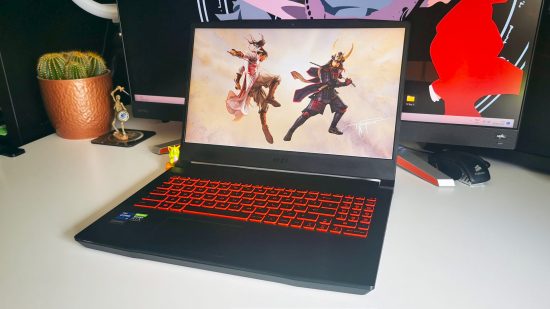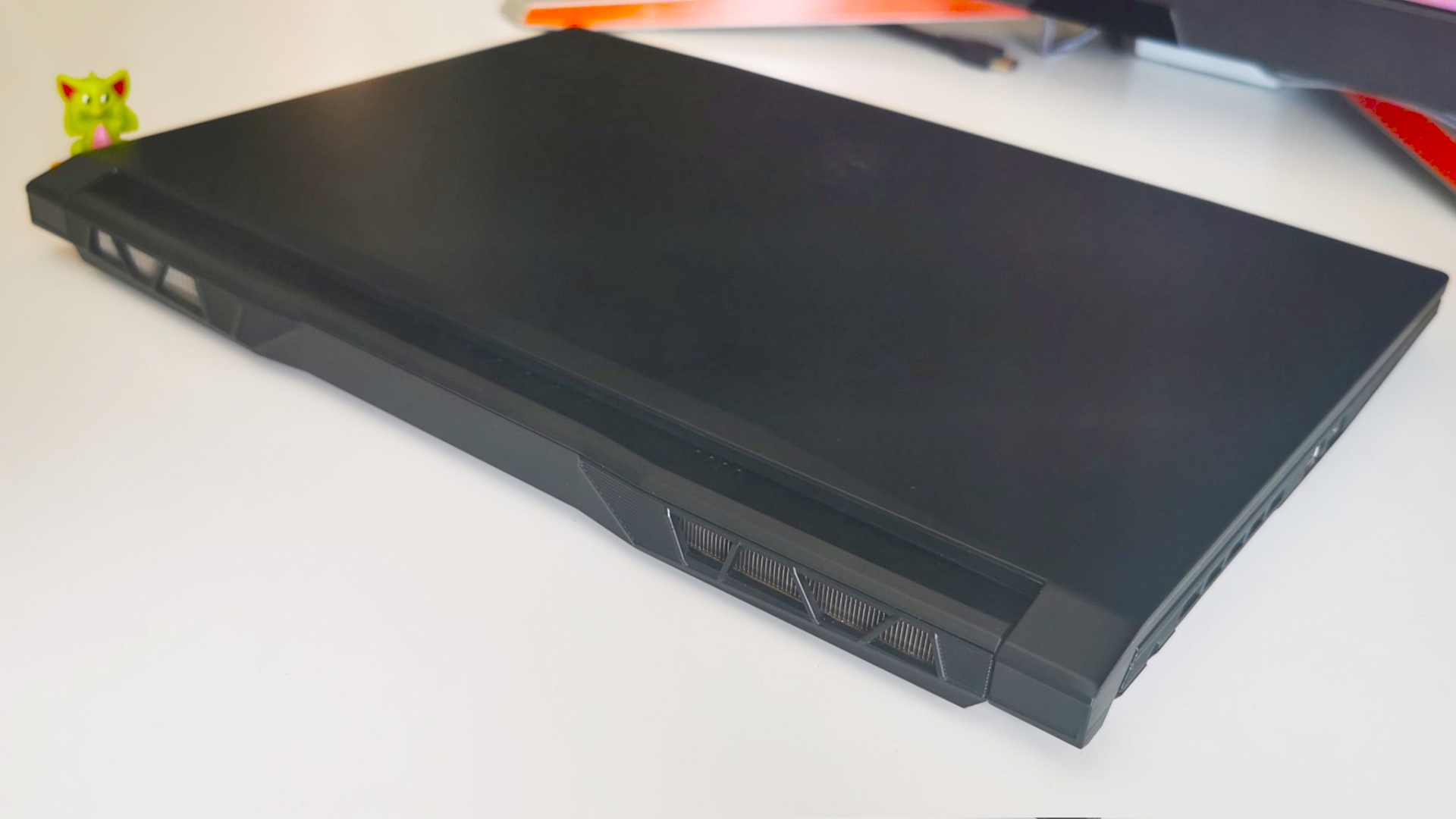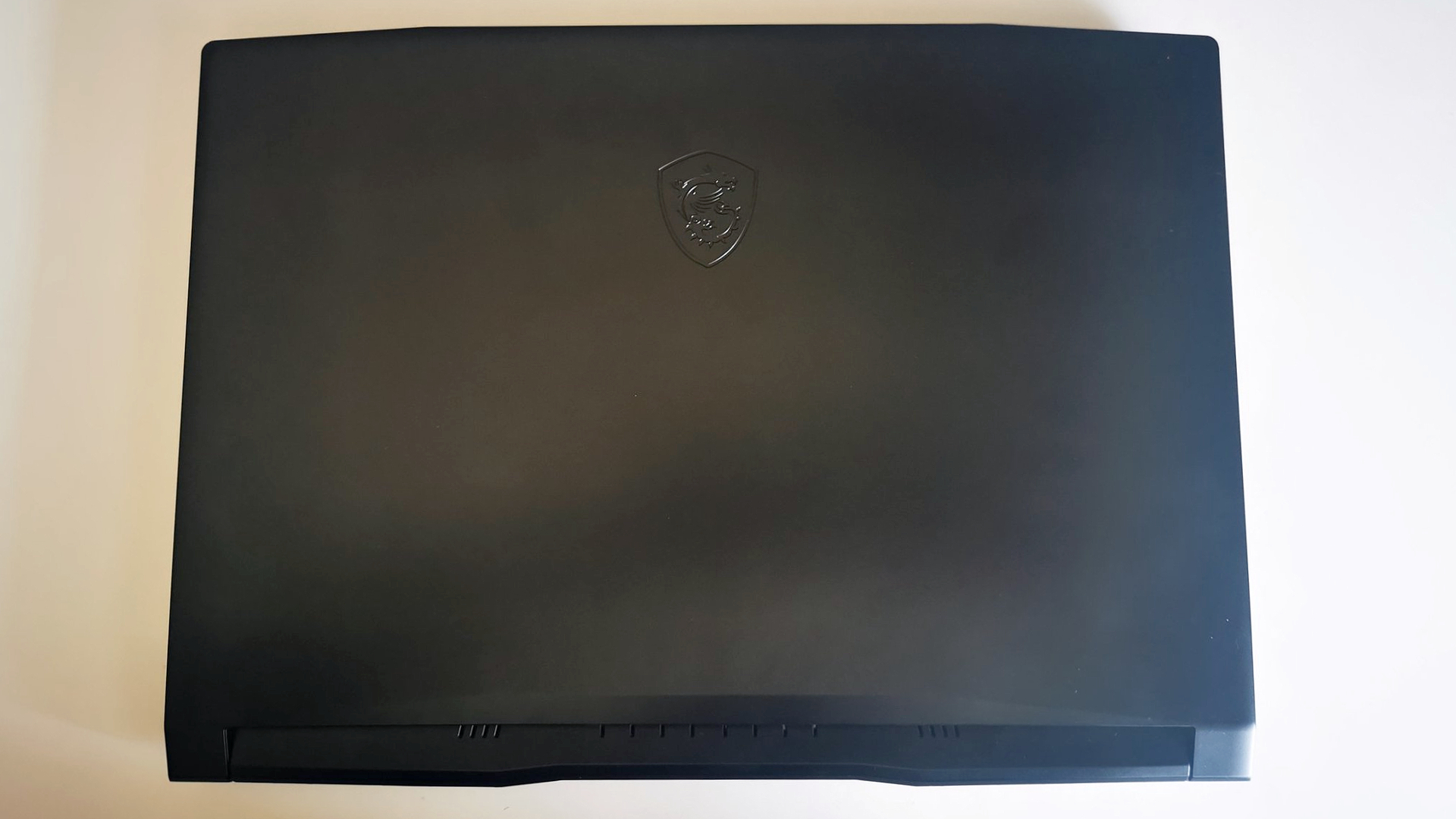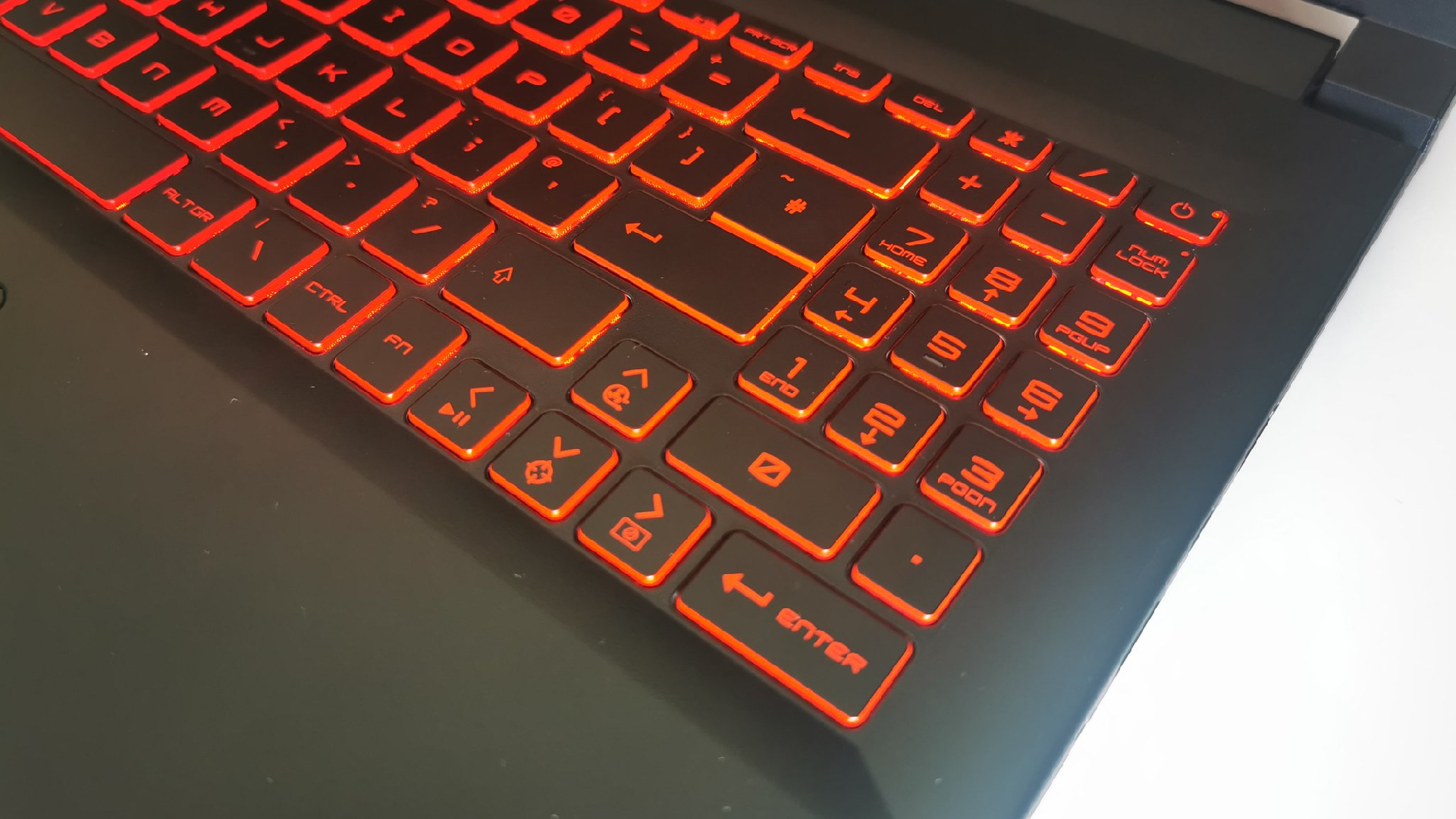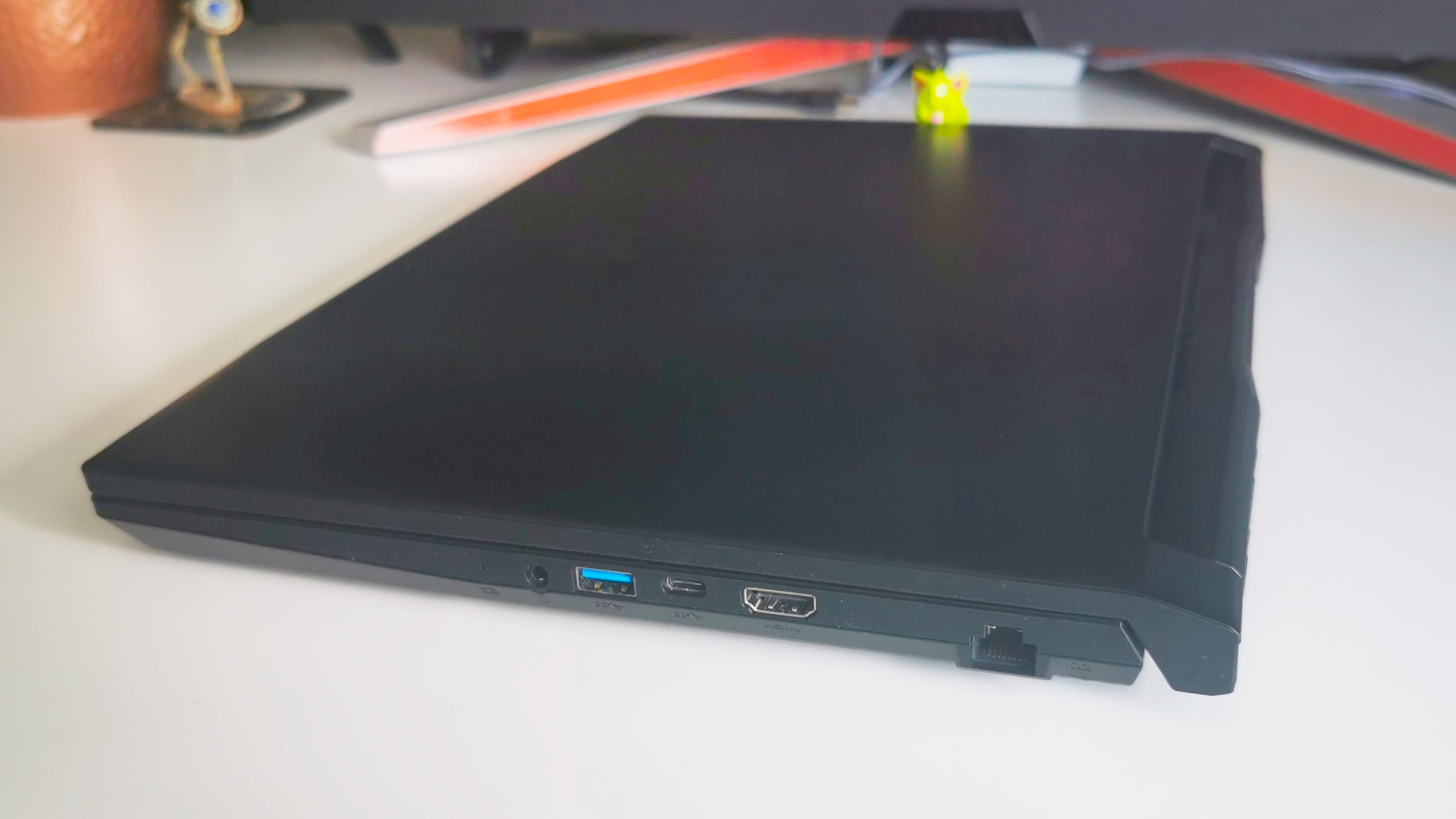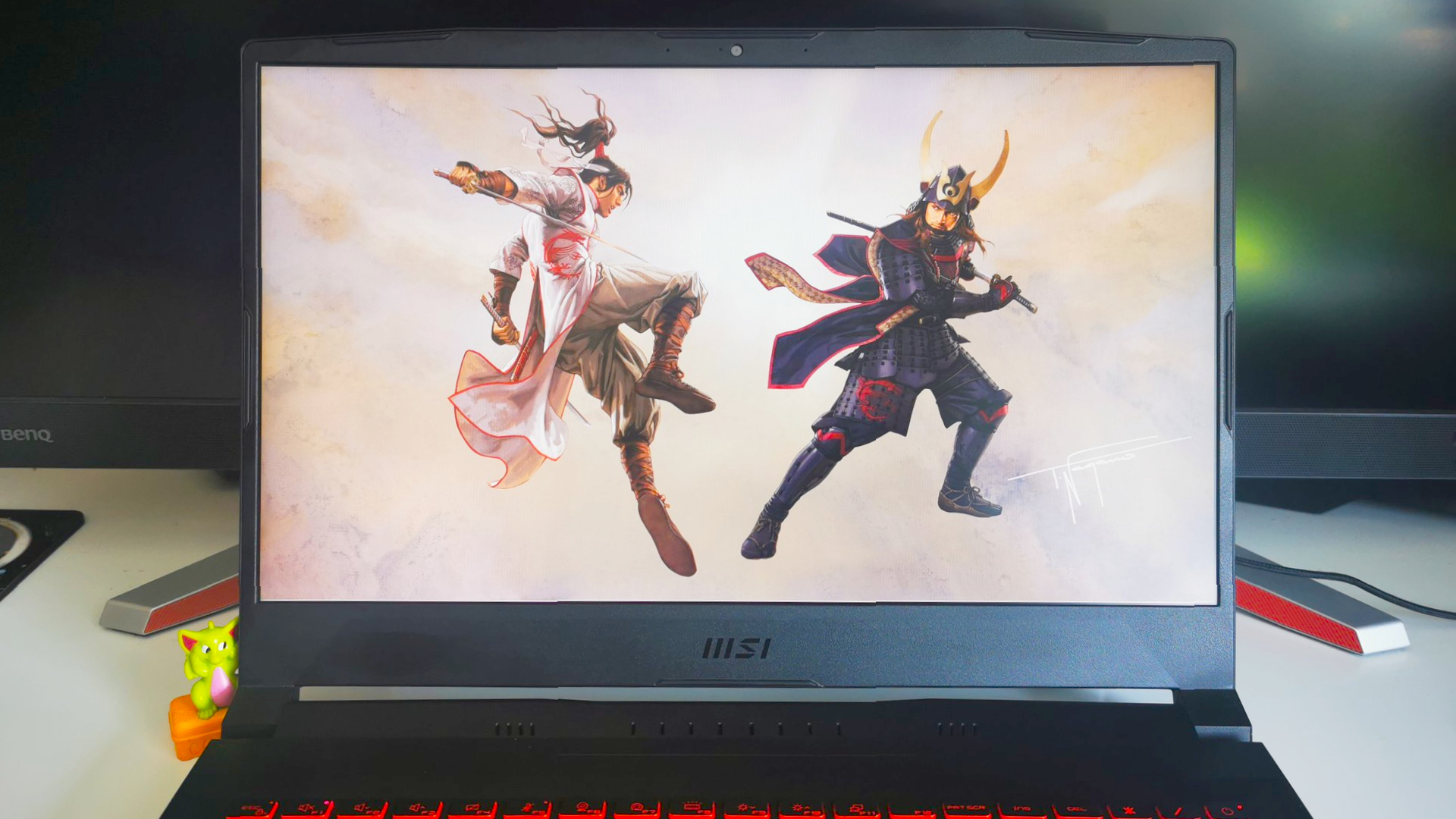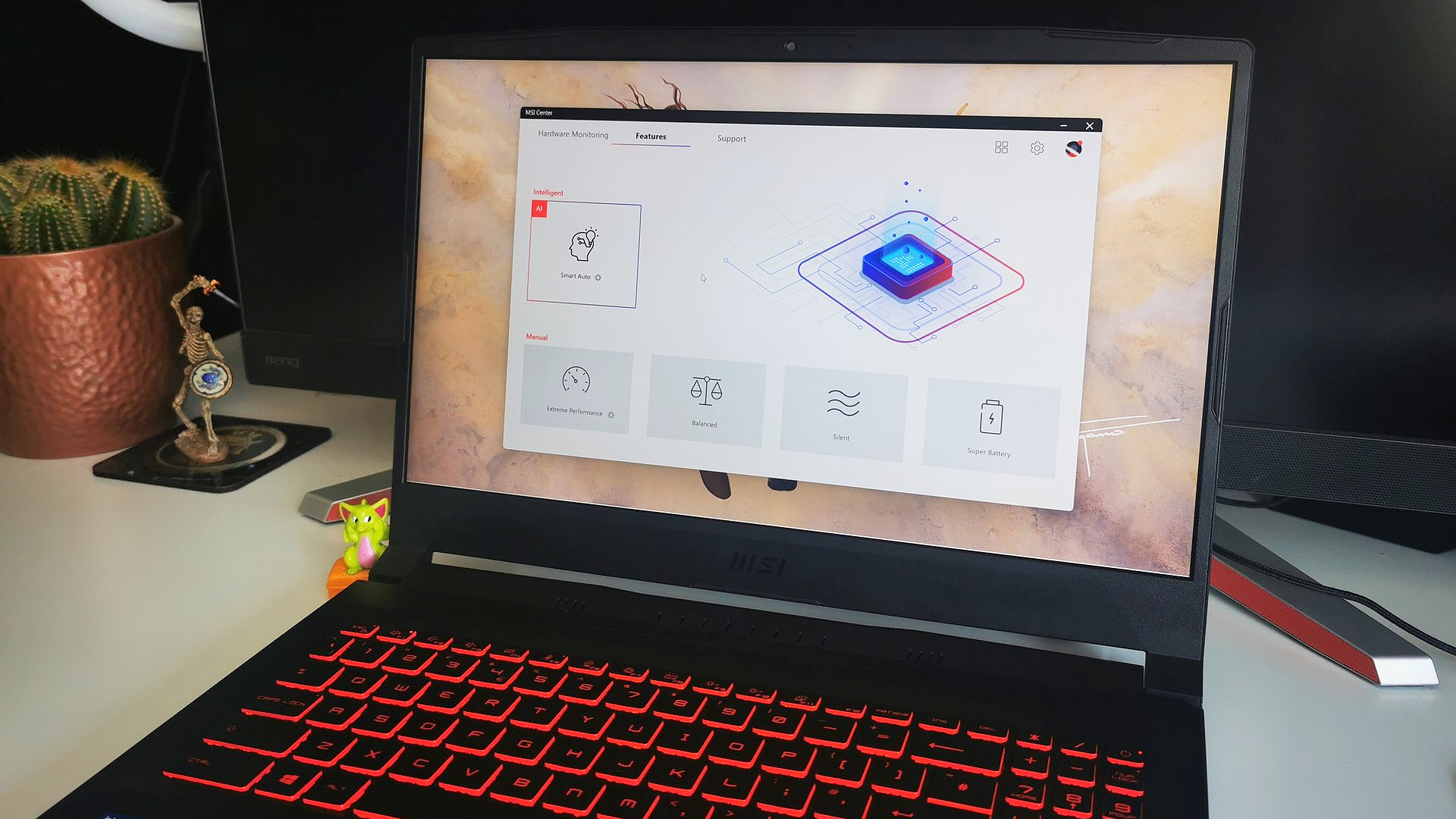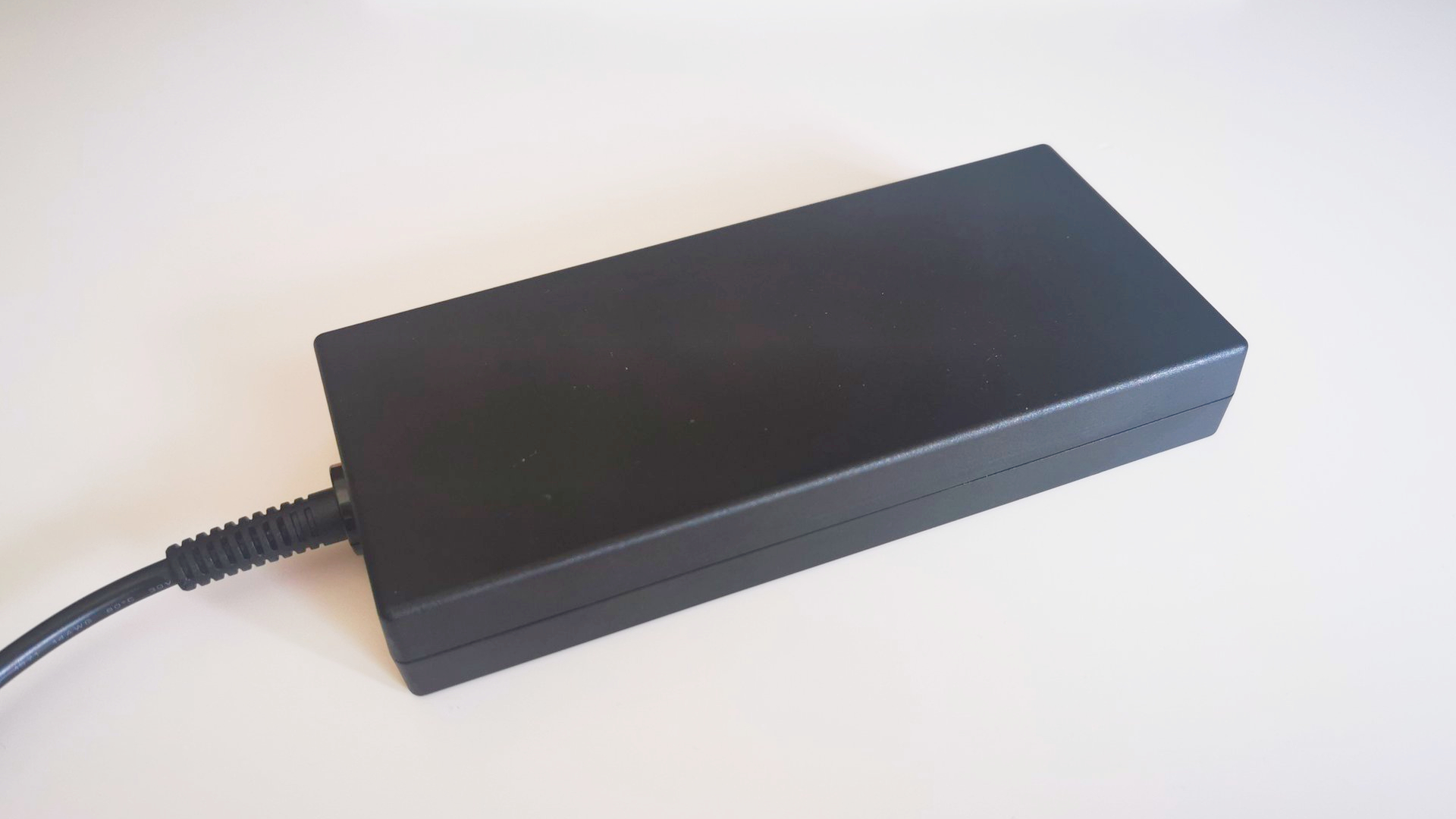The MSI Katana GF66 12U is a traditional gaming laptop through and through. That’s not to say it doesn’t pack a punch, as it wields a panel that’ll please competitive PC players and esports enthusiasts alike. Yet, it feels as though MSI has taken a muddled approach with its budget model specs, resulting in a price that could sway you to look elsewhere.
Armed with a 240Hz display, the MSI Katana GF66 12U gaming laptop is no run-of-the-mill machine. While its screen resolution and graphics card of choice caters to 1080p gaming, its high refresh rate capabilities are a boon when playing the best FPS games.
Pros
- Speedy 240Hz panel
- Snappy Intel Alder Lake CPU
Cons
- Expensive
- Bland aesthetic
- Limited ports
It takes more than a speedy screen to succeed in the best gaming laptop ring, as there are cheaper contenders that wield a high refresh rate. The MSI Katana GF66 12U has the potential to come out swinging against some Gigabyte, Acer, and Asus alternatives, but its aesthetic, choice of specs, and price point might keep it from the limelight.
MSI Katana GF66 specs
| CPU | Intel Core i7-12700H |
| GPU | Nvidia GeForce RTX 3060 laptop GPU |
| Memory | 16GB DDR4, 3200MHz |
| Storage | 1TB NVMe SSD |
| Screen size | 15.6-inch |
| Screen resolution | 1920 x 1080 |
| Refresh rate | 240Hz |
| Price | £1,399 |
MSI Katana GF66 12U design
Take a second to imagine a gaming laptop in your mind’s eye. Got something? Well, it probably looks almost like the MSI Katana GF66. At 15.6 inches, this particular portable gaming PC features the same understated housing as previous models, with high-quality plastics that contribute to its rigid chassis.
If you’re looking for a solid laptop that’ll survive day-to-day knocks, the Katana GF66 should hold up just fine. Weighing in at 2.25kg, it’s reasonably burly, but it actually weighs more than the Asus TUF Dash F15 – an extremely durable laptop that I use as a daily driver. It’s hard to decipher why MSI’s machine is heftier, but it is visually chonkier and anything but elegant.
The Katana GF66 uses a fairly typical screen bezel, but MSI hasn’t gone out of its way to slim anything down. In fact, unlike some laptops out there (looking at you, Asus TUF Dash F15), this model includes a 720p webcam. Performance-wise, the portable rig’s electric eye is reliable and clear, making it more than up to the task of work meetings.
Aesthetically, Katana GF66 sits somewhere between understated and bland. Don’t get me wrong; I’d take MSI’s matte black finish over a loud and proud racing stripes rig any day of the week. However, there’s something overwhelmingly basic about the laptop’s exterior, with a look I’d normally associate with cheaper options. Put it this way, if you typed ‘gaming laptop’ into that Dall-e Mini AI generator, you’d probably end up with something similar.
That’s not to say the laptop is completely devoid of colour, as it harbours menacingly red accents around its keycaps. If you’re not a fan of red, you’re fat out of luck, as the laptop’s chiclet gaming keyboard boasts single-colour LED backlighting that screams ‘dark side of the force’.
Speaking of keyboards, the Katana GF66’s clicky-clacky solution includes a comically small numpad, which occupies a two-inch space on the right-hand side. Thankfully, the rest of the laptop’s keyboard layout doesn’t feel cramped, but everything is slightly off-centre compared to alternatives. That shouldn’t matter much to the average user, but I’ve already deleted this sentence four times to correct typos, so take from that what you will.
MSI Katana GF66 12U features
Arguably, the star of the show is the Katana GF66’s 240Hz display, as options at this price point typically include a 144Hz panel. If you’re hellbent on playing games on a high refresh screen, this laptop will help you achieve that goal, but its inclusion comes with compromise, especially when it comes to bang for buck.
Under the hood, the MSI Katana GF66 is equipped with an Nvidia RTX 3060 – a laptop GPU that pairs well with 1080p gaming. My main issue with this specific SKU is that you can grab an RTX 3070 laptop for around the same price, and with RTX 4000 graphics cards on the horizon, they’ll likely get cheaper.
Sure, those models normally include a 144Hz screen, but to make the most of the Katana GF66’s panel, you’d need to go to greath lengths to boost fps to get anywhere near the 240Hz on display here. That’s not to say it’s not doable, but it’ll be harder to achieve with future releases, and you might need to bump your settings down in newer games (we’ll get to that in a bit). This is all par for the course if you play competitive shooters, but if that’s not your bag, then you might want to spend your money on an RTX 3070 rig instead.
Accompanying the Katana GF66’s GPU is an Intel Core i7-12700H CPU, 16GB of DDR4 RAM, and a Gen 4 1TB NVMe PCIe SSD. In terms of ports, the laptop’s kitted out with three USB 3.2 ports, a USB 2.0 port, USB-C, and an HDMI 2.0 port.
The number of ports included is fairly typical, but I have a few gripes with MSI’s configuration. First off, HDMI 2.0’s limitations mean that if you want to hook up the Katana GF66 to the best gaming monitor around, it’ll be capped at 4K 60Hz. The laptop’s USB-C port also lacks both Thunderbolt and power delivery capabilities, further dashing my plans to integrate it with my gaming desk setup.
Naturally, a gaming laptop’s measure of merit should be based on its gaming PC performance, and the MSI Katana GF66 is a capable 1080p machine. You’ll need to wind your settings down to benefit from its 240Hz screen, but you should be able to achieve over 60fps in many modern games without touching a dial.
The RTX 3060 isn’t a bad laptop GPU, and it’s more than capable of providing a modern gaming PC experience. If you’re not a frame rate fuss pot, you could even take advantage of its ray tracing abilities and still achieve 1080p 60fps in games like Guardians of the Galaxy.
That said, the RTX 3060 is an entry-level card, and using it to reach 240fps is no easy feat. Despite my best efforts, I couldn’t get Halo Infinite to run past 170fps, even with resolution scaling cranked to the floor. Naturally, GPU can pump out more frames in older shooters like CS:GO, but you’d perhaps expect as much with a 2022 model.
Most of my Katana GF66 concerns lie with its panel and GPU pairing. A portable RTX 3060 rig typically sells for around $1,200, and it’s entirely possible to get one for below $1,000 on sale. MSI’s SKU, however, comes in at £1,399 (around $1,650 USD with VAT) in the UK – a price tag you’d expect to see slapped on an RTX 3070 model.
When you consider the fact that the RTX 3060 isn’t necessarily able to hit 240fps in most games, even with toned-down settings, it places a question mark above the high-spec screen’s inclusion. To add insult to injury, the display is visually mediocre, lacking both vibrancy and definition. Fast-paced games like Neon White feel silky smooth at 240Hz, but the platformer’s vivid visuals failed to turn up to the panel party.
Of course, the Katana GF66’s Intel Alder Lake CPU also contributes to its price point, as the 12th gen chip contributes to gaming performance and keeps things snappy during general use. Though, the processor’s abilities only excuse its price to an extent, as AMD Ryzen chips aren’t far behind the i7-12700H in terms of gaming performance.
The annoying cherry on top of MSI’s questionable choice of specs is the decision to forgo a MUX switch. Including the motherboard graphics tech would have helped the RTX 3060 churn out more frames and edge closer to the 240Hz pannel’s preferred fps.
Gaming laptop performance sometimes comes at the cost of peace and quiet, but the Katana GF66’s cooling solution isn’t offensively loud. You can toggle fan speed settings using MSI Centre, and the software comes with a bunch of profiles to suit a variety of use scenarios.
The laptop’s ‘smart-auto’ fan profile should, in theory, automatically scale things by monitoring GPU and CPU mode. While the mode appears to function as intended, fan noise appears to sit at a specific level during gaming, which I’m actually okay with.
If any and all fan noise gives you the ick, you probably won’t be happy until you’re blocking it out with a gaming headset. I actually prefer the Katana GF66’s persistent hum, as the sudden stop-and-start approach used by the likes of the Asus TUF F Dash 15 is sometimes distracting.
Battery life is a bit of a sore spot for the Katana GF66, as it’ll only have your back for a fraction of your day. During testing, I’d have to reach for its weighty power brick after three hours of general use, meaning I couldn’t venture too far from a power outlet. The fact the laptop’s USB-C lacks charging capabilities adds salt to the wound, as it also means you can’t use a power bank in a pitch.
Ultimately, the MSI Katana GF66’s biggest drawback is its price tag, and it’s a kicker when you consider what you can actually buy for around £1,400. If you’re a stickler for fast refresh rates, this laptop’s panel may check a few boxes, but sadly, the rest of this particular SKU feels like an expensive mismatch. Using a super speedy panel like peacock feathers isn’t enough to mask that fact, and unless you’re willing to stick to older games and reduce your settings, the 240Hz machine will struggle to take flight.
